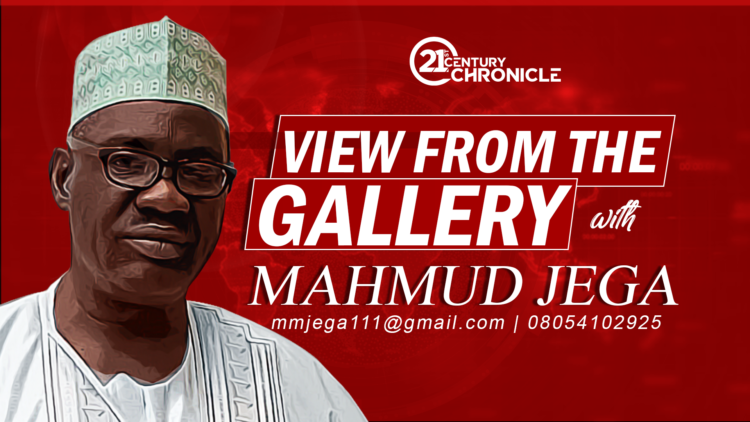The Arise TV interview lasted 45 minutes, but critics immediately mounted a forensic audit of President Buhari’s landmark local media outing, shopping for a gaffe. They quickly seized on an offhand remark he made when answering a question about restiveness in the South East region. He said IPOB’s separatist agitation to recreate a Republic of Biafra was like a dot in a circle that has nowhere to go. He then proceeded to wonder why a community with huge investments all over the country will want to secede from Nigeria.
For the activists who recently got Twitter to delete Buhari’s remarks because it allegedly threatened South Easterners, they seized on this remark and created a mountain out of a molehill. Hoping to get another Twitter-like body slam, they said Buhari said South Easterners are the dot that has nowhere to go outside Nigeria. That was quite a stretch. Sure the president did not place his punctuations very well in the long sentence. He went from discussing IPOB separatism in one breath to speak about the larger South Eastern community’s investments without making a clear distinction. The distinction was well implied in his remarks, however, because IPOB does not have any investments outside the South East, and there too only a score of ragtag militiamen.
Buhari did not use the dot in a circle idiom the way ancient Greek philosophers, linear algebraists or modern-day radiographers use it to describe the fungal infection maduromycosis in an MRI scan. He meant to say IPOB’s agitation has nowhere to go because objectively speaking, it does not serve the strategic aims of the community that they claim to champion. If anything, bombing INEC offices, storming police stations, shooting stray cops walking in the streets and serially attacking compatriots from other parts of the country has imperiled South Eastern politicians’ campaign for a president from the zone in 2023.
Observing last Saturday’s Democracy Day events from the gallery, it occurred to me that IPOB was not the only dot in the Nigerian circus, sorry, circle. Other dots in the Nigerian circle also have nowhere to go with their current methods. Liberal democracy has fared uninterrupted in Nigeria for 22 years now, the single longest stretch since Independence. Yet, governments did not mount a major celebration given the mood in the country. Insecurity, economic pinch and political anxieties made Nigerian democracy a dot in a large circle.
With governments reluctant to mount a celebration, activists and human rights groups stepped in to fill the void. Protests and demonstrations are a healthy aspect of democratic culture, but in Nigeria, peaceful protest is often a dot in a closed circle. Where European demonstrators throw tomatoes and rotten eggs to make their point, Nigerian protesters often resort to throwing stones and broken bottles. In turn that made our cops a dot in the protection circle. Ahead of last Saturday’s Democracy Day, police commands in several states banned street demonstrations. Given the way last year’s EndSARS protests degenerated into the looting of supermarkets, storming of prisons and lynching of cops in some city streets, I personally do not blame them.
The activists who demonstrated on June 12 were another dot in a circle. They didn’t have a coherent message. Some said they were celebrating the landmark June 12, 1993 election. Others said they were protesting against bad governance. Another group ran around South Western cities demanding for a “Yoruba nation.” Yet another group converged in Abuja and said Buhari must go. I quickly leafed through the pages of the 2007 Supreme Court ruling in Atiku Abubakar’s case. The apex court said a President, Vice President, governor or deputy governor could lose his office before his tenure expires by one of four means: resignation, impeachment, incapacitation or death. Supreme Court did not list street demonstration as one way in which the president could be removed, so it was a dot in the constitutional circle.









